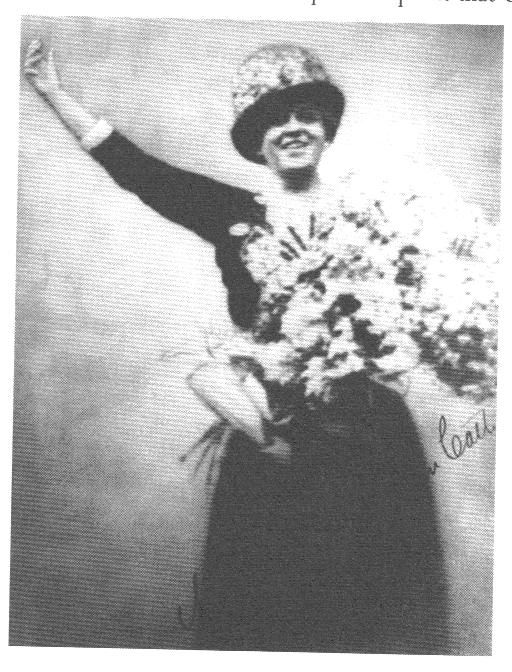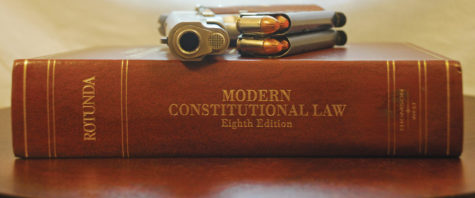Letter: Carrie Chapman Catt was ahead of her time
July 2, 2020
I can even name one of the first — her name was Elizabeth Ensley. As a result of that 1893 suffrage win in Colorado, one of Catt’s most stunning and significant victories, the Black women of Colorado were enfranchised.
It was a great start. That vote enfranchised Ensley and her colleagues in the Colored Women’s Republican Club and the Women’s League of Denver. These women were in turn successful in electing a Black man, Joseph Henry Stuart, to the Colorado Assembly along with three women. That 1894 election led to some groundbreaking civil rights legislation. In addition, the vote to extend suffrage to women in Colorado served as an example for several other Western states that followed.
The chapter of the book arguing for universal suffrage included 4,130 words, including the ones deemed offensive. It starts by stating the white supremacists of the South seem more worried about the “sly dred of female supremacy” and concludes “The answer to one is the answer to all. Government by ‘the people’ is expedient or it is not. If it is expedient, then obviously all the people must be included.”
There is no ambiguity Catt is arguing for the enfranchisement of Black Americans. I often wonder what folks would have done differently when white supremacists ran full page ads across Tennessee wanting to know why she wrote Blacks should “share equally in the privilege of democracy.” I am proud that in 1917, Catt believed Black lives mattered.
And when I use the term “universal suffrage,” I mean the known universe. Catt worked for the enfranchisement of women in the Philippines, India, China, Japan, Hawaii, South Africa and Europe.
In addition, I believe if you wish to be fair, you would base your judgement of Carrie Chapman Catt on the bulk of her life’s work — both words and actions — over her entire adult life working for women’s suffrage in the United States and internationally as well as world peace. It would be difficult to weigh all of course.
There are millions of words addressing suffrage alone. In that same year the 19th Amendment was ratified (1920), Catt was the highest ranking (if not only) white suffragist confronting the slander against “colored” troops doing occupational work in Germany after World War I. Southerners and others were up in arms filled with indignation that colored troops were being used by the Allies to serve as occupation troops guarding whites in the defeated Germany. Soon many in the South and North were attributing all sorts of false and sordid accusations.
Many of Catt’s peers were asking Mary Church Terrell (first president of the National Association of Colored Women) to sign a petition calling for the removal of those troops. Given her international contacts and her travels to Europe, Catt was uniquely suited to weigh in on this topic.
When asked by Terrell for her opinion, Catt sought input from her European contacts and others she didn’t know but were from Germany. After studying the issue, Catt came to the defense of Black occupation troops in Europe who were falsely accused of rape. In fact, Catt reported the German women found Black troops better behaved than white troops.
This is why decades later, in 1947, upon her death that support still resonated with Mary Church Terrell, who stated “The whole world has lost a great good and gifted woman who for many years pleaded with it to deal justly with all human beings without regard to sex, race or religion.”
For 20 years I have heard people state supporters of Carrie Chapman Catt believe she was a product of her time. I, on the other hand, have never heard anyone who studied her life say that. More likely those that studied her life say she was ahead of her time.
For example, Catt complained to hotels that would not allow Black women into her meetings. She wrote editorials for The Crisis, the official journal of the NAACP in 1917 (the same year as the book chapter defending the inclusion of African Americans in the 19th Amendment) stating “there will never be a true democracy until every responsible and law-abiding adult is in it, without regard to race, sex, color or creed has his or her own inalienable and unpurchaseable voice in the government.” She celebrated new educational opportunities for young women of African origin.
She was ahead of her time regarding the Monroe Doctrine, stating “It is false in its theory because there is no logic; there is no justice, there is no ethics which can possible make justifiable the right of any nation, by its own assumption of authority, to assume direction over any other nation without that nation’s consent.”
She was ahead of her time regarding how Blacks had been treated in America. In 1920, Catt wrote “In all this bungling, disgraceful history it is difficult to say whether the South or North was guilty in the greater number of inexcusable errors, but one thing stands out clearly and that is that the Negro has been the innocent victim who had been wronged at every turn.” (Why the Southern States of the U.S. Refused Suffrage to Women, 1920)
She was ahead of her time regarding the threat of Nazi Germany in 1933 and was presented The American Hebrew Medal for the Promotion of Better Understanding between Christians and Jews. “Because for more than two decades, in her successful campaign for woman suffrage, she championed equality of womanhood, irrespective of race or creed; because she is in the vanguard of those laboring for peace and international amity because she has climaxed her years of activity in behalf of a basic American principle by organizing a Protest Committee of non-Jewish women against the treatment of Jews in Germany…and succeeded in marshalling Christian sentiment, by securing 9,000 non-Jewish women…to protest the shocking pogrom against the Jews…” (American Hebrew and Jewish Tribune November 17, 1933.)
In a speech about American foreign policy in 1927 she reflected on the truth behind a question from a foreign diplomat: “Is it not time to ask whether the white man has a burden or is a burden?” (Is Our Foreign Policy at Fault? Elements in a Constructive Foreign Policy. April 23, 1927 Speech by Carrie Chapman Catt in Philadelphia Pennsylvania)
Iowa State students still live in a district represented by Steve King and I graduated from a high school named for the founder of the American slave trade (Columbus High School). Many politicians remember the Alamo but not the Port of Chicago, the Tulsa Massacre, both travesties at Mother Emanuel, The Tuskegee Study and Isaac Woodard. There are so many appropriate topics for rage. The Iowa State alumna who won enfranchisement for both white and African American women through a federal constitutional amendment is deserving of more, not less, praise and a fair reading of her life.
Tim Lane is the great-great-nephew of Carrie Chapman Catt.
















